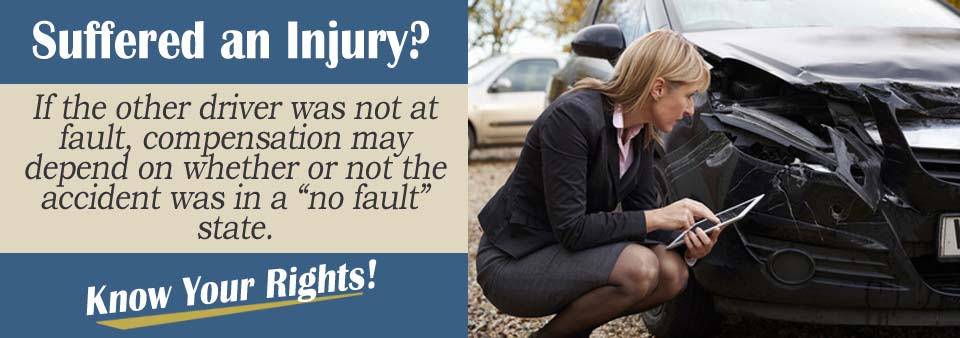If you have been in a car accident and it has been proven that you are at fault and not the other driver, you may be unsure as to what options you have for compensation. Are you at a complete and total loss for any damages you have suffered because of the car accident?
The other driver is going to seek recovery from your insurer, but how do you recover?
We have asked attorney, Alaina Sullivan, for some more explanation about this scenario. Here's what she had to tell us:
Contact Your Insurance Company
The first thing you must do is contact your insurance company and inform them of the accident as soon as possible. If you can do it the day of the accident, that is encouraged but do not wait any longer than the next day after the accident.
Tell them exactly what happened to cause the accident, especially if you believe you are at fault. The reasoning for all of this is most insurance policies do give requirements that you must meet in working with the insurance company.
These steps are just a few, and if you do not cooperate with the requirements, you could be barring yourself completely from receiving any type of compensation. It is too risky to not do things properly.
Inform Them of Any Repairs
Once you have contacted your insurance company, you should expect them to want to take pictures of the damage to your car. At the very least, give them the opportunity to do this for their own records and protection. Do not take your car in for repairs without notifying the company first.
Otherwise you may have a difficult time proving damages should they dispute them.
Am I Covered?
Do not just assume that your insurance coverage will cover you in a car accident. The minimum coverage by law is normally just liability insurance, which covers the other driver’s damages. If you just have the minimum you will be paying for your own car repairs and medical bills out of your own pocket.
It is important you add other areas of coverage to full pay for damages in the event of a car accident that is your fault. Collision coverage is one option that will pay for the repair or replacement of your care, regardless of fault.
A deductible is involved, of course, but anything above the deductible amount is covered by your insurance. Medical payments coverage is an additional option where your insurance covers medical expenses for hospital stays, doctor’s appointments, physical therapy and funeral expenses.
These extra coverage provisions do increase your premium, but they also protect you should the unthinkable happen.
No Fault Car Insurance
Twelve U.S. states and the District of Columbia have what is called “no fault” insurance laws. These states include Florida, Hawaii, Kansas, Kentucky, Massachusetts, Michigan, Minnesota, New Jersey, New York, North Dakota, Pennsylvania and Utah. No fault insurance means that your insurance company will pay some or all of your medical bills and lost earning damages if you get into an accident, not taking into account at all who is at fault.
Laws vary from state to state, but in most, there is a limit to what your insurance company will pay you for, while some have no limit.
In no fault insurance, however, you are not allowed to make a claim for pain and suffering damages against the negligent driver unless the damages reach a certain level.
Making a No Fault Insurance Claim
A no fault insurance claim is also known as a Personal Injury Protection claim or PIP claim. It is a claim you make against your own insurance company for the payment of your medical expenses and lost earnings under no fault insurance laws.
Your state will have a cap on how much you can claim in terms of medical bills, and once you reach that amount, you will be responsible for paying for anything over that. Normally, that is where your health insurer will take over.
What Happens to My Insurance Premium?
In most situations, minus states that are no fault, you should expect your insurance premium to temporarily increase for a few years if you make a claim for an accident for which you are at fault. States vary on how long premiums will stay up but the average is around seven years.
Contact an Attorney Today
A licensed personal injury attorney will be able to evaluate your case and determine if you have a claim against the other party’s insurance company. For the best chance of receiving the compensation you need to pay for medical bills, auto body bills, and pain and suffering, you should speak with a personal injury attorney in your area today.
